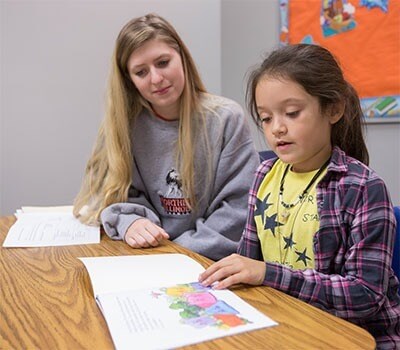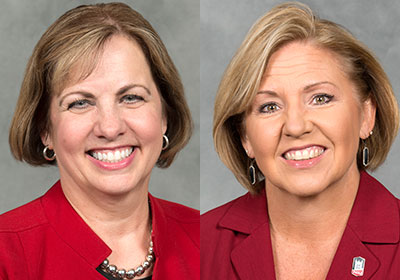DeKalb, Ill. — The Northern Illinois University College of Education is teaming with the State of Illinois to provide tutoring that will support students whose learning has been impacted by the COVID-19 pandemic.
Administered by the Illinois State Board of Education and the Illinois Board of Higher Education, the Illinois Tutoring Initiative program partners with universities, school districts, leaders and communities across the Land of Lincoln.
Priority is given to school districts that were disproportionately affected by the pandemic. Each district will identify its students who need tutors, the areas in which they need help and the in-person or online method of delivery.
Funding for the program comes from the federal government’s investment of nearly $8 billion in pandemic relief for Illinois schools; 90% was distributed directly to school districts.
NIU was awarded $3.4 million to serve as the coordinating hub for Region 2, which includes 16 counties in the northwest corner of the state: Boone, Bureau, Carroll, DeKalb, Henry, Jo Daviess, La Salle, Lee, Marshall, Ogle, Putnam, Rock Island, Stark, Stephenson, Whiteside and Winnebago.
Responsibilities include the hiring, training and oversight of hundreds of people who will provide “high-impact” tutoring – an evidence-based practice that accelerates student learning – either one-on-one or in small groups of no more than three students each.
Qualified tutors can include candidates in teacher-licensure programs, which will allow NIU students to gain real-world experience while still in school.
- Interested in becoming a tutor? Visit https://employment.niu.edu/postings/61310 or https://employment.niu.edu/postings/61309 to apply.
Tutors hired by NIU will focus on math and reading with children in third- through eighth-grades, said Jennifer Johnson, senior director of the Office of Student Success in the NIU College of Education.
“This is high-impact tutoring. This is not ‘homework help.’ This is acceleration, not remediation,” Johnson said. “This is directly aligned with curriculum and with strategies identified in the Illinois State Board of Education’s Learning Renewal initiative.”
Math and reading are “foundational content areas that form the basis of students’ preparation to succeed in all other academic areas,” said Laurie Elish-Piper, dean of the NIU College of Education.
NIU’s selection as the Region 2 hub acknowledges “how we have been identified as a leader in the field of education and in ways that we can partner with school districts to support their needs and the needs of their students,” Elish-Piper said.
Such support also extends to NIU students.

“I’m excited for our teacher-candidates because this give them an additional opportunity for meaningful preparation toward becoming teachers and, because these are paid experiences, a way to help them pay for their education,” Elish-Piper said.
“Our hope is that, down the road in Year Two, we will incorporate some of these experiences into required clinical experiences so that students will complete paid internships where they’ll get academic credit,” she added. “They also will build relationships with individual students or small groups of students to develop their repertoire of instructional strategies.”
Elish-Piper also plans to collaborate with community college partners to offer jobs to their students interested in education careers “to get them involved, to build their own professional preparation and to help connect them to NIU, which would lead to smoother transfers.”
Media Contact: Mark McGowan
About NIU
Northern Illinois University is a student-centered, nationally recognized public research university, with expertise that benefits its region and spans the globe in a wide variety of fields, including the sciences, humanities, arts, business, engineering, education, health and law. Through its main campus in DeKalb, Illinois, and education centers for students and working professionals in Chicago, Naperville, Oregon and Rockford, NIU offers more than 100 areas of study while serving a diverse and international student body.


